Search
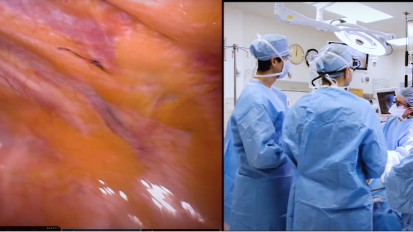 News
News
Enhancing Care for Thoracic Oncology Surgery Patients
Building on a decades-long reputation for innovation in thoracic surgery, UC San Francisco’s Thoracic Surgery and Oncology Clinic has improved the overall experience for patients undergoing lung and esophageal cancer treatment while continuing to maintain strong outcomes.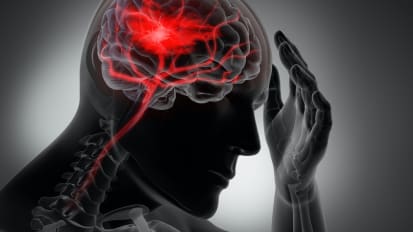 Video
Video
Stroke and COVID-19: Connections, Concerns and Care
Answering questions from both patients and doctors, our neurovascular disease experts discuss the higher risk of clotting disorders associated with severe SARS-CoV-2 illness and how to manage these cases. Document
Document
UCSF Bariatric Surgery Center
UCSF Bariatric Surgery Center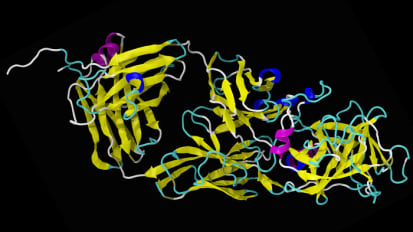 News
News
Patients With Detectable PSA After Radical Prostatectomy Have Good Long-Term Outcomes, UCSF Researchers Find
Patients with a detectable prostate-specific antigen (PSA) after radical prostatectomy (RP) may have excellent long-term outcomes, according to two retrospective studies conducted by UCSF researchers. Video
Video
Chronic Pelvic Pain and Endometriosis: Part 1
Jeannette Lager, MD, describes the complex etiology of chronic pelvic pain, including its visceral, musculoskeletal and neuropathic causes, and presents a systemic approach to the assessment of a chronic pelvic pain patient.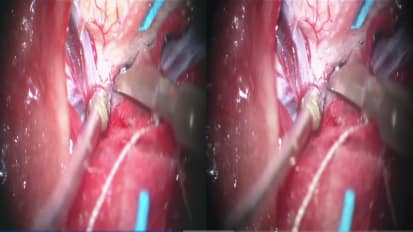 Video
Video
Focused Transsylvian Approach for a Left Posterior Insular Cavernous Malformation: 3D Operative Video
Watch and hear narration for a complete resection of a left posterior insular cavernous malformation measuring 1.2 centimeters, using a focused transsylvian approach. You’ll see 3D pre- and postoperative images and hear about the patient’s outcome. News
News
Aggressive Blood Pressure Control May Prevent Common Heart Condition
Heart conduction disorders can often lead to serious or fatal complications including complete heart block or heart failure. Document
Document
UCSF Center for Limb Preservation and Diabetic Foot
Our center combines the skills of renowned vascular surgeons, podiatrists and limb preservation specialists to provide comprehensive vascular and podiatric care for patients with limb-threatening conditions.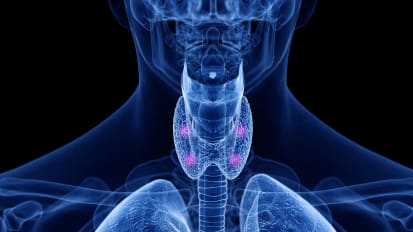 News
News
New Hypoparathyroidism Guidelines and Emerging PTH Replacement Therapies for Improved Patient Outcomes
New guidelines from the Second International Workshop on the Evaluation and Management of Hypoparathyroidism provide clinicians with the latest evidence-based recommendations for the prevention, diagnosis and management of this rare disease.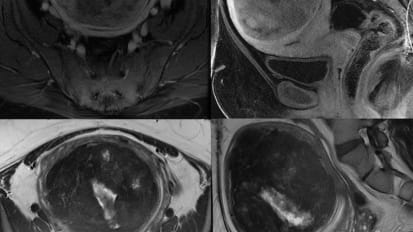 Video
Video
Overview of Fibroids
Dr. Jeannette Lager gives an overview of her presentation on the types and classification of fibroids. Video
Video
Degenerative Cervical Myelopathy: New Insights on a Common, Potentially Life-Altering Condition
Age-related spinal changes can be relatively benign – but they also can result in spinal cord dysfunction. Video
Video
Headache Update - Module 4
See the latest treatments for migraines (some not on the market yet), including lasmaditan (a serotonin 1F receptor agonist), DHE via inhalation and medicines to block CGRP. Plus: infusions for refractory headaches, intractable primary headaches and more. Video
Video
Pelvic Organ Prolapse: Better Terms and Effective Strategies for Primary Care Management
Urogynecologist Caitlyn E. Painter, DO, explains why the anxiety-provoking condition requires sensitivity from providers and how they can help patients understand the problem and find a solution – from Kegels to surgery – that suits them. Video
Video
Pop Goes the Knee: Primary Care Diagnosis and Management of the Most Common Injuries
Orthopedic surgeon Elly LaRoque, MD, presents a guide to the knee problems frequently seen by PCPs, including tips on distinguishing complaints by typical histories and physical exam findings. Video
Video
The Road to Motherhood: Simple Rules for Navigating Pregnancy in Primary Care
The PCP is the first line of care for women planning or beginning a pregnancy, and their questions range from “Which vitamins do I need?” to “Should I get genetic testing?”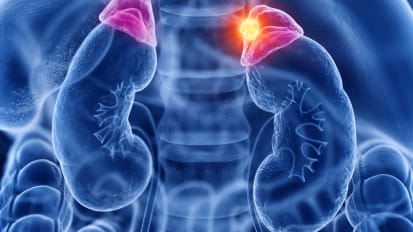 Video
Video
The Incidental Adrenal Mass: Workup Guide for a Common Finding
A frequent guest star on abdominal images taken to assess other conditions, an adrenal mass may be benign or serious, such as pheochromocytoma – making workup essential.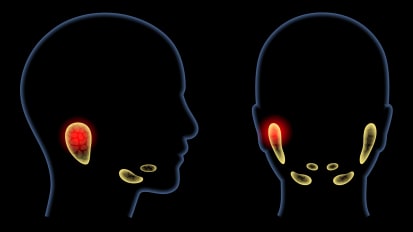 News
News
The First Patient-Centered Sialadenitis Assessment Tool
A new standardized measure of symptoms associated with salivary duct obstruction was recently developed by researchers, including UCSF otolaryngologists Jolie Chang, MD, FACS, and William R. Ryan, MD, FACS, and UCSF medical student Arushi Gulati.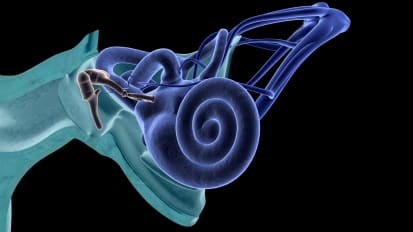 News
News
Migraine Sufferers Are Prone to BPPV at an Earlier Age, Study Finds
Migraine predisposes individuals to developing benign paroxysmal positional vertigo (BPPV) earlier in life than those without migraine, according to a UCSF study. Video
Video
Advances in GI Cancer Care: How to Consider the Latest Drugs and Strategies
In this new edition of the Cancer Center Live Series, three UCSF specialists present exciting updates on difficult-to-treat gastrointestinal malignancies, including pancreatic cancer, peritoneal metastases and advanced biliary tract cancers. News
News
Renowned Expert to Lead UCSF’s Hematology and Oncology Division
Krishna Komanduri, MD, an international leader in hematology-oncology, transplantation and cellular immunotherapy, is the new chief of UCSF’s Division of Hematology and Oncology. Video
Video
A Handy Guide: How to Identify and Manage Common Upper Extremity Conditions
When patients present with pain, weakness or numbness in fingers, wrists or elbows, providers need efficient paths to diagnosis and initiating care. Video
Video
Get Current on COVID: The Evidence on Vaccine Efficacy and Strategies for Immunocompromised Patients
A panel of experts answers all the current questions on breakthrough infections, who needs boosters, whether to keep recommending masks, and the future of variants, with a spotlight on meeting the needs of the immunocompromised, such as organ transplant recipients and cancer patients. Bonus: what to know about molnupiravir to treat COVID-19. Video
Video
Adrenal Tumors and Posterior Retroperitoneoscopic Adrenalectomy (PRA): A Case Study
Sanziana Roman, MD, an endocrine surgeon, discusses a patient’s treatment for a tumor in the retroperitoneum, near the adrenal gland. News
News
Aggressive Surgery Increases Survival with Low-Grade Brain Tumors
UCSF-Led study shows extensive resection results in longer survival for glioma patients

